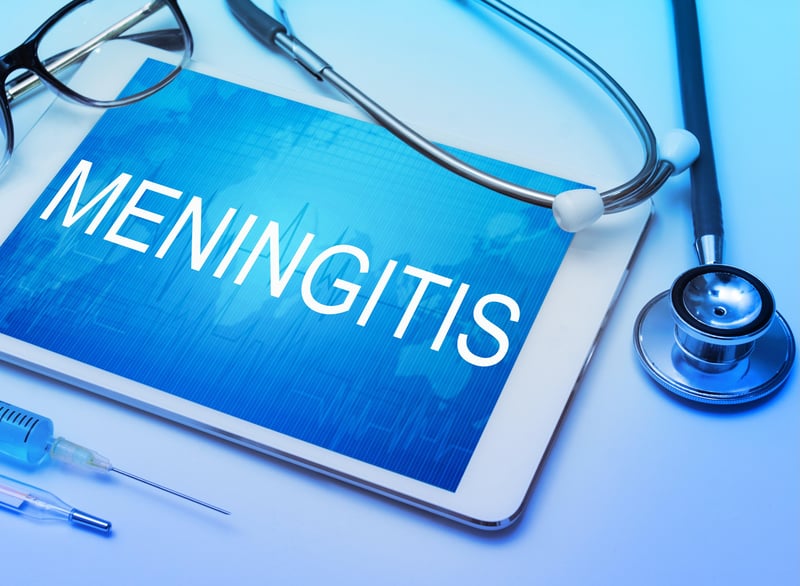Get Healthy!

- Posted June 28, 2023
Meningitis Cases Rising Among Gay Men With HIV
Meningococcal disease -- which includes meningitis -- appears to be on the rise among Americans infected with HIV, new research reveals.
Researchers stress that the risk to any one person remains exceedingly rare, regardless of their HIV status.
Each year between 2017 and 2021 HIV-positive patients accounted for five to 15 cases of the bacterial disease, which typically shows up as meningitis or meningococcemia. (Meningitis is an infection of the tissue surrounding the brain and spinal cord. Meningococcemia is a blood infection that may involve other parts of the body.)
The data mean that during between 2017 and 2021, HIV patients represented 1.5% to 4.3% of all American meningococcal patients.
The problem: By 2022, people living with HIV accounted for nearly 10% of cases, according to preliminary data reported by the U.S. Centers for Disease Control and Prevention.
While that amounts to just 29 cases, in relative terms it represents a big jump. By some measures, the numbers indicate more than a doubling in risk, for a disease that can come on suddenly and proves fatal in about 10% of cases.
“Meningococcal disease is a term used to describe any type of infection caused by bacteria called Neisseria meningitidis,” said study author Amy Rubis, of the CDC's National Center for Immunization and Respiratory Diseases.
Meningitis and bloodstream infections are primarily spread through close contact. The bacteria is spread by coughing, kissing and saliva, though Rubis stressed that they are not as contagious as the germs that cause the common cold or flu.
"People do not catch the bacteria through casual contact or by breathing air where someone with meningococcal disease has been,” she said.
Rubis noted that either meningitis or meningococcemia can be deadly within hours.
To keep abreast of infection trends, Rubis said the CDC routinely reviews local and state health reports.
“When reviewing preliminary data for 2022, our team was surprised there was more disease among people with HIV than would have been expected based on recent years' data,” she said.
To get a more precise picture, Rubis and her colleagues then excluded all cases that had been part of one specific (and large) outbreak last year that occurred mostly with gay men.
“However, even when cases related to outbreaks were excluded, there was still a clear increase in cases among people with HIV,” she said.
Rubis said what's going on is unclear.
“That said, we do know that having HIV increases someone's risk for getting meningococcal disease,” she noted. “And having a low CD4 count or high viral load increases that risk even further.” That refers to a scenario in which uncontrolled HIV leaves patients with a weakened immune system, and an inability to fight off infection.
Many Americans living with HIV regularly take antiretroviral medications now, and typically have extremely low or even undetectable levels of the virus.
Rubis said vaccination against meningococcal disease has not been routinely recommended for gay and bisexual men unless an outbreak arises.
As a result, many people with HIV remain unvaccinated, though an effective -- though not foolproof -- vaccine (MenACWY) is available.
“While meningococcal disease is uncommon, we believe these data highlight the importance of MenACWY vaccination, including boosters, for people with HIV,” Rubis said.
Dr. Robert Glatter, an emergency physician with Northwell Lenox Hill Hospital in New York City, noted that the vaccine is highly effective in reducing meningitis risk.
Glatter, who reviewed the new findings, pointed to studies indicating that among adolescents the vaccine reduced disease risk by more than 90%.
“Sexually active gay men should absolutely get the vaccine, if they haven't already,” he said.
“Persons living with HIV, and men having sex with men, are two important groups who should receive the vaccine,” Glatter said, along with college students, military recruits, organ transplant and cancer patients, and those with autoimmune conditions.
He said that advice applies equally to HIV patients taking antiretroviral drugs to keep their HIV in check and their immune system robust.
"Their risk for contracting meningitis is still considerable,” he said.
The findings were recently published in the CDC's Morbidity and Mortality Weekly Report.
More information
The U.S. Centers for Disease Control and Prevention has more on meningitis.
SOURCES: Amy Rubis, MPH, Division of Bacterial Diseases, National Center for Immunization and Respiratory Diseases, U.S. Centers for Disease Control and Prevention, Atlanta; Robert Glatter, MD, emergency physician, Northwell Lenox Hill Hospital, New York City; Morbidity and Mortality Weekly, June 16, 2023
